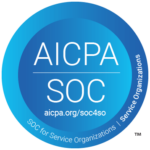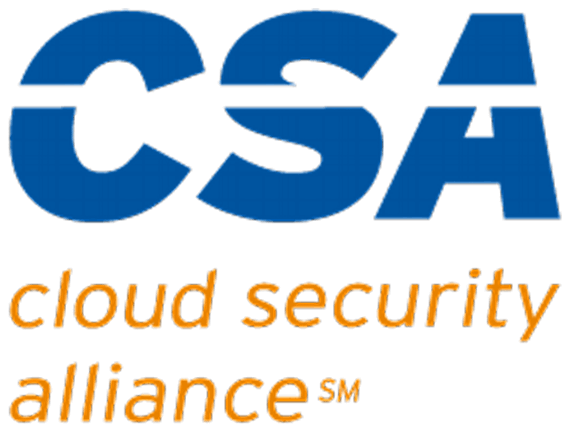Introduction
Public WiFi access is an enticing proposition. It’s free, it’s convenient, and it’s open to everyone. But is public WiFi safe? There are several reasons why users may be hesitant to connect to public WiFi networks. Cybersecurity concerns are one reason – public WiFi networks are unlikely to be as secure as your home or office network. They could be vulnerable to intrusion and cyberattacks, and your personal information could be at risk. Then there’s the matter of privacy. Is transmitting sensitive information over a public network risky?
What is public WiFi?
Public WiFi is a wireless network that allows anyone within range to connect and access the Internet. It’s available for use by anyone in a given area and is accessible from any device with built-in WiFi capability. The general idea is that it’s convenient for users to be able to use the Internet wherever they are. It also makes sense for businesses and other organizations that may not want to allow access to their private network but still want to provide connectivity to their customers.
What are the security risks of public WiFi?
Public WiFi is a convenient way to connect to the Internet, but it exposes users to security risks. Public WiFi providers can track users’ browsing habits and general Internet activity, and there is little transparency about how this information is stored or used. When logging onto a public WiFI network, you typically must accept a user agreement to connect, but have you ever read it? While the contract may spell out the terms of the provider’s privacy and data retention policies, very few users take the time to learn these details. In addition, public WiFi networks are vulnerable to cyberattacks, especially since anyone within range of the WiFi network can theoretically log on. Clever hackers can potentially hijack the network, redirecting users to malicious websites that look just like their legitimate counterparts to steal personal information such as login credentials or credit card numbers. Public WiFi networks are often subject to snooping by third parties such as hackers or spies for that reason.
Malware and viruses
The risk of infection from viruses and malware is very real when using public WiFi. In some cases, these risks are self-imposed. Many people use public WiFi without taking the necessary precautions to protect themselves, such as using a virus scanner and installing malware protection software. Others accidentally download malicious software while browsing the Internet on a public WiFi connection. As mentioned previously, industrious hackers can potentially take control of a public WiFi network and redirect you to phishing or malware websites that look legitimate. News websites, lifestyle websites, and even search results can be faked, leading you to dangerous web pages designed to install viruses or hijack your system. The good news is that simple precautions, such as active virus/malware protection and a secure web browser, can reduce your risk of exposure to these types of threats (see below).
Snooping and tracking your activities
Many people feel comfortable letting their guard down on public WiFi despite warnings. They will treat it as a private network – accessing online banking, shopping, payment services, social media, etc. However, by logging into public WiFi networks, you open yourself up to potential privacy risks. Since these public networks are available to everyone, the possibilities abound for nefarious actors to scan the network and sniff out the activities of other users. Alfred T. Chen, a researcher at the University of California, Berkeley, reported in 2009 that an attacker could leverage a network sniffer to potentially identify the operating system and software used by a user on an unprotected public WiFi network. With a little more work, an industrious hacker can intercept and examine the contents of data traveling over the WiFi network and potentially capture and modify the information in those data packets. The potential dangers of using public WiFi have become so concerning that one travel website advises visitors to “use your mobile phone as a hotspot instead.” It’s best to think of public WiFi as having zero privacy, equivalent to someone is watching everything you do.
Data theft
There are several data theft risks associated with using public WiFi networks. Anyone with an internet connection can access public WiFi networks, making them a prime target for hackers. If you connect to a public WiFi network without first taking any measures to secure your laptop or mobile device, it is vulnerable to attack and the contents of the device’s local storage might be accessible to a hacker. Personal information (such as your email address, login credentials, and bank account details) that you transmit over a public WiFi network may be intercepted and stolen by unauthorized individuals. Public WiFi networks can be particularly vulnerable to cyberattacks that steal sensitive data such as credit card numbers or passwords. If your personal data is stolen while using a public WiFi network, it could be used for identity theft or other malicious activities. In short, it is essential to be aware of the data theft risks when using public WiFi networks and take appropriate precautions to protect yourself and your data.
Strategies for staying safe when using public WiFi
So is the convenience of public WiFi worth the risk of being hacked or tracked? There’s no easy answer, but using caution when connecting to public WiFi networks might be good. The previous sections should be sufficient to discourage you from ever using a public WiFi network. However, we live in a connected world, and the reality is that we all find ourselves using public WiFi from time to time. While there is no 100% safe way to use a public network, you can minimize your risk with some simple steps:
Avoid websites that contain sensitive data or require a login
When you are connected to a public WiFi network, be cautious about what websites you visit and what information you submit or access. Avoid logging into services, such as online banking, shopping sites, and social media accounts that require you to sign in when using public WiFi. It should go without saying that online payments should be avoided while connected to a public WiFi network. Limit your online activities to reading news, researching publicly accessible resources, browsing product information – anything that uses publicly available content and does not require a login or a credit card.
Use a VPN when using public WiFi
A VPN (Virtual Private Network) encrypts your online traffic and can prevent others from seeing what you’re doing online. While it’s not foolproof, a VPN can make it more difficult for hackers to sniff out your online traffic. If you use a VPN while browsing the web, it encrypts your traffic and routes it through an intermediary server, protecting your data from eavesdroppers and hackers. This is great for keeping your information private while using public WiFi. The easiest way to use a VPN is to subscribe to a VPN service. A monthly subscription will give you access to a wide range of VPN services from top-rated providers like NordVPN and Private Internet Access (PIA). You can also find standalone VPN apps for both Android and iOS devices. Simply install the software provided by the service and connect to one of their servers to begin a VPN session.
Use your web browser’s private or incognito mode
When connected to public WiFi, it’s often a good idea to use your web browser’s private mode. The majority of web browsers offer a private browsing feature – Microsoft Edge calls it “InPrivate,” Google Chrome calls theirs “incognito,” and so on. Browsing history is not tracked when operating in such a mode, and all local data associated with the session, such as cookies, history, and cache, are cleared when the session is closed. While private web browser modes are a step in the right direction, bear in mind that they may not fully protect the user against being tracked by other websites and the Internet service provider (ISP). In addition, you or the ISP could conceivably be capable of leaking identifying information from private browsing sessions through operating system errors, browser security loopholes, or malicious browser extensions. Here’s how to start private browsing in Chrome, Edge, Safari, and Brave.
Check the security settings of your devices
If you must use public WiFi, be aware of the security settings of your devices. Windows has an option to flag a network as public, which will cause your computer to be hidden from other devices, and file and printer sharing will be disabled. While it does not appear that Apple has a similar option, you’ll want to check your device’s security or firewall settings to ensure that they are appropriate for using a public network. Apple recommends that you only use networks that meet or exceed their security standards. If you try to connect to an insecure network with an Apple device, you may receive a warning message. It should go without saying that your device needs active and up-to-date endpoint protection, which usually means antivirus, antimalware and safe browsing protection at a minimum. Both Windows and macOS come with a built-in virus protection solution, and a range of popular third-party products are available, such as Avast, AVG, and MalwareBytes.
Keep your OS and software up to date
Your operating system, web browser, and other software will frequently receive updates designed to fix security issues and improve performance. In some cases, updates are installed automatically. However, you can override automatic updates via system settings, and some software such as web browsers may require you to initiate an update manually. For these reasons, make sure your OS, web browser, and antivirus software are up to date before connecting to a public WiFi network. There are a few reasons why keeping your software updated is important:
- New vulnerabilities are being discovered constantly, and hackers can exploit outdated software;
- Updating your software protects you from potential data breaches and other attacks;
- Updating your software also ensures that it will run optimally on newer devices and systems;
- Keeping your software up to date makes it more reliable in the long run and reduces the chances of running into compatibility issues or other problems down the road;
- Finally, keeping your software updated also gives you access to new features and improvements that have been made over time.
Conclusion
Public WiFi hotspots are convenient and may offer a faster connection than using your mobile network when you are out and about. But is there a trade-off in terms of safety and privacy? Researchers at Indiana University Bloomington found that publicly-available WiFi networks are more likely to be infected with malicious software, including viruses and worms. The study also found that private networks are less likely to be infected with malware. While the dangers of public WiFi should not scare you off from using it, be sure to take the precautions outlined in this article when connecting to a public network.
We hope that you have found this article to be helpful. Happy computing, and stay safe!




